Scientific Conference on International Information Security
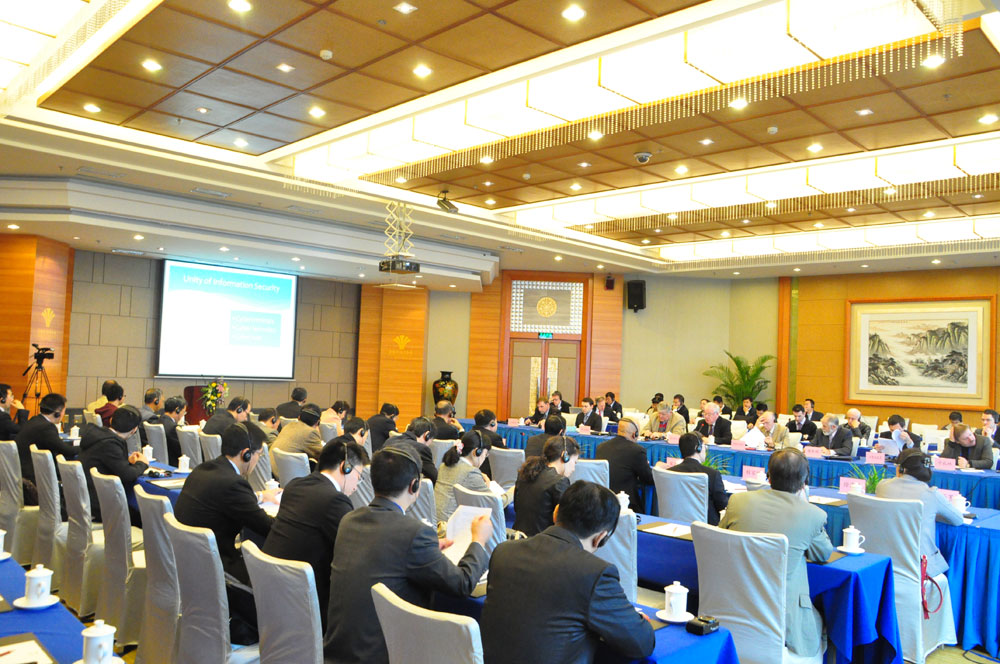 Scientific Conference on International Information Security has started its work in Changsha, China in 25 October and continue till 27 October. Representatives of many countries including Russia, United States, China, United Kingdom, Canada, Israel, etc. have came together to discuss existing Information Security Problems and try to find joint decisions acceptable for all sides.
Scientific Conference on International Information Security has started its work in Changsha, China in 25 October and continue till 27 October. Representatives of many countries including Russia, United States, China, United Kingdom, Canada, Israel, etc. have came together to discuss existing Information Security Problems and try to find joint decisions acceptable for all sides.
Representatives of all participating countries show their concern about increasing cyber treats in Internet environment. All participants express understanding that regardless to technological and economical development no country alone can succeed in the war against cyber crime. It's why International Information Security Research Consortium (IISRC) consortium is trying to convince more countries to join to convention on International Information Security. Actually any organization actively using cyberspace and concern about its security may apply for IISRC Consortium membership. Like so, during conference the application of world leading global online payment company PayPal was reviewed and accepted as a member of IISRC Consortium, moreover, Qafqaz University has officially applied for membership of the consortium.
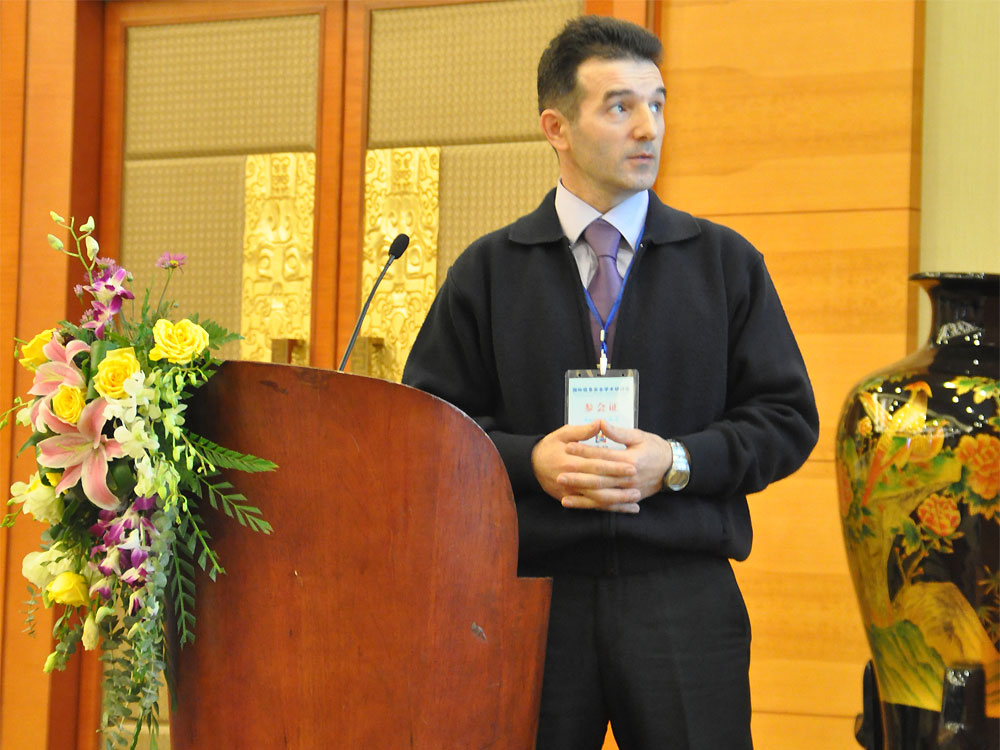 It's really facinating scientific event and good opportunity to meet people who have different views to the same problems, but at the same time common aims to make cyberspace more secure and sustainable as well. One of key issues conference stands on is discussion on common terminology for cyberspace security. There are so many ideas and different understandings on each terminology that it's going to be problematic to come to agreement. At the same time, such discussion gives an opportunuty to escape unacceptable interpretations and get mature decision. Anyway, I think terminology should be kept as general and broad as possible escaping details, otherwise we will have more misundertandings that we have now.
It's really facinating scientific event and good opportunity to meet people who have different views to the same problems, but at the same time common aims to make cyberspace more secure and sustainable as well. One of key issues conference stands on is discussion on common terminology for cyberspace security. There are so many ideas and different understandings on each terminology that it's going to be problematic to come to agreement. At the same time, such discussion gives an opportunuty to escape unacceptable interpretations and get mature decision. Anyway, I think terminology should be kept as general and broad as possible escaping details, otherwise we will have more misundertandings that we have now.
Some evenets and workshops took place during conference days:
- Opening Ceremony and Welcome Speech (Zhou Ji, President of Chinese Academy of Engineering - CAE)
- Establishment of regulations on Internet conducts (Anatoly Streltsov - Director of Department of the Russian Security Council, Russia)
- International Information Security. New Initiatives of Russia (Sherstuyk V.P., Director of Institute of Information Security Issues of Moscow State University, Russia)
- Thoughts on Cyber Sovereignty and Scientific Problems of Internet Content Analyzing (Fang Binxing, Academician of CAE, China)
- Cyber Security and International Cooperation (Nigel Inkster, Dicercor of the International Institute for Strategic Studies, UK)
- International Information Security Reaserch Consortium (IISRC) Annual Plan for 2012 (Sherstuyk V.P., Russia)
- PayPal company presented its vision of cyber security and answered to question what is PayPal's contribution to Cyberspace Security (Andy Steingruebl, Senior Manager, PayPal, USA)
- IISRC Membership Application Presentation by Qafqaz University (Adamov A.Z., Chair of Computer Engineering Department at Qafqaz University, Azerbaijan)
- Workshop on Concept of Convention on International Information Security (Sherstuyk V.P., Russia)
- Workshop on International Information Security Glossary (Karl F. Rauscher, Cheif Technology Officer, EastWest Institute , USA)
- Workshop on Models on Escalation and De-escalation in Cyber Conflict (John Mallery, Research Scientist, MIT, USA)

The 5th International Conference on
Application of Information and Communication Technologies
AICT2011
www.aict.info
AICT2011 General Chair's Opening and Welcome Speech
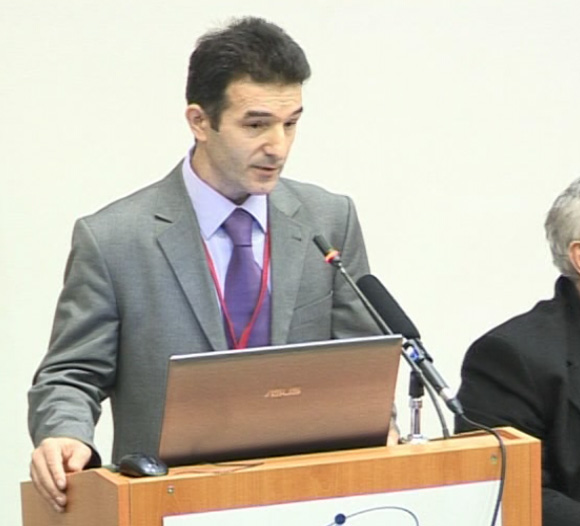 Honorable Ministrer for Communication and Information Technologies, Minister for Education of Azerbaijan, respected members of parliament, Co-organizing Bodies and University Rectors, Representatives of the Embassies, Honorable Distinguished Guests and Speakers, Conference Participants, particularly those from abroad!
Honorable Ministrer for Communication and Information Technologies, Minister for Education of Azerbaijan, respected members of parliament, Co-organizing Bodies and University Rectors, Representatives of the Embassies, Honorable Distinguished Guests and Speakers, Conference Participants, particularly those from abroad!
Ladies and Gentlemen,
On behalf of Organizing and Steering Committee, it is our great pleasure and privilege to welcome you to the 5th International Conference on Application of Information and Communication Technologies.
Building on the success of previous conferences which were held in Baku and Tashkent, we hope AICT2011 will be the unprecedented and most spectacular event in ICT-related conference history hosted by Azerbaijan for its high level and the large size of participation.
The objective of the three day Conference is to learn and share knowledge among us and with those having rich experience of application of ICT in their countries. The AICT2011 International Conference is a forum to bring together business people, researchers, scientists, software architects, and industry professionals to discuss innovative ideas and diverse topics on next generation of information technologies and services.


The AICT2011 Organizing Committee members in the Azerbaijan have worked extremely hard for the last year to prepare an outstanding conference. As a result we have prepared many technical sessions to discuss the Challenges, Opportunities and Problems of Application of ICT in verious fields. An impressive roster of distinguished speakers from around the world has been assembled for this Opening ceremony and Keynote sessions. Our Local Organizing Committee consisting of faculty members and students is committed to provide maximum hospitality. Please feel free to apply and ask questions to committee members.
While concluding, I take the opportunity to welcome each one of you and express our gratitude in your agreeing to participate in this conference. I am in particular grateful to our international guests who have traveled long distances to be with us. Enjoy your participation in the AICT2011 and memorable time visiting unique places in Baku. We hope you return next year with even more colleagues for next AICT2012 will be held in different country.
Thank you. Have a wonderful conference days.
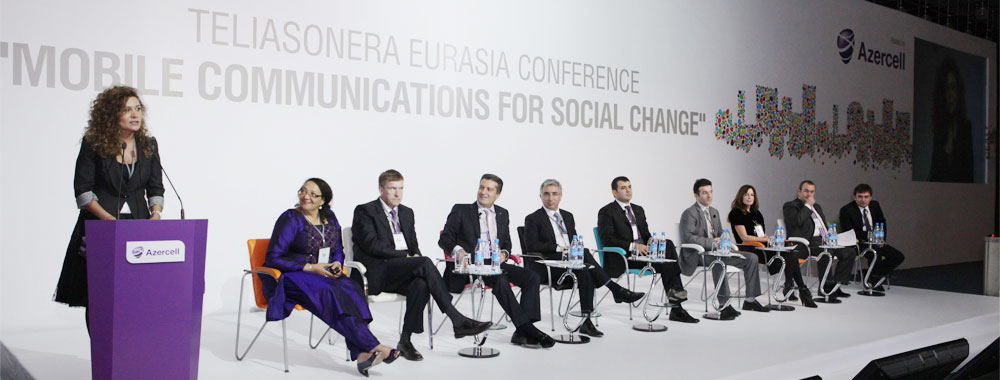
Mobile Communication Impact on Education - New Opportunities and Challenges
TeliaSonera Eurasia International Conference on
Mobile Communications for Social Change
November 25, Baku, Gulustan PalaceSome Mobile Communication Statistics.
- According to the reports the number of mobile phones in use in the world exceed 5 billion (world pop is 6,8 bln)
- The share of smartphones as a proportion of overall device sales has increased to 29% for phone purchasers in the last six months;
- Students spend about half of their time outside of the University;
- Today more mobile phones have Internet access than PCs;
- There are more than 400 mln facebook users and 100 million of them use smartphones;
- There are 7 000 000 mobile phones in Azerbaijan;
- About 98% of populated areas in Azerbaijan are covered by mobile network.
Qafqaz University’s vision to mobile communication
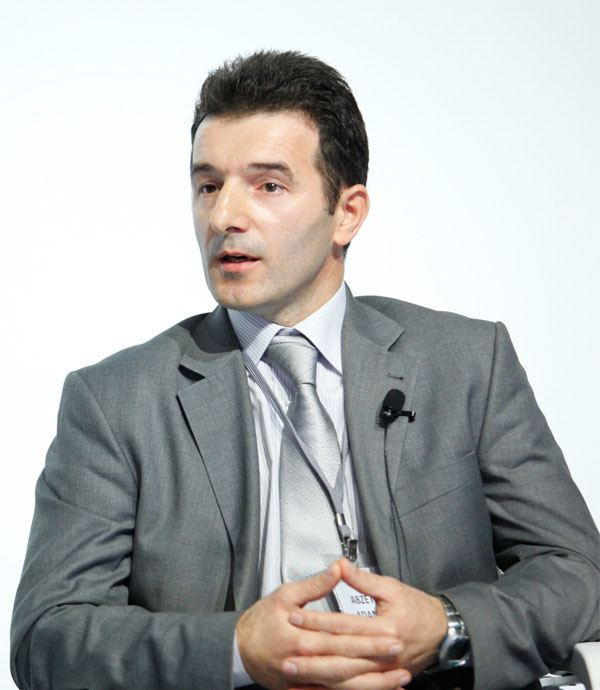 The Net Generation or so-called digital natives are today’s college and university students seem completely at home in the digital world. They adopt technologies rapidly. When they want information, they just use the Internet to find for themselves. Students are not only consumers of information but also active information creators – including text, images, audio, and video.
The Net Generation or so-called digital natives are today’s college and university students seem completely at home in the digital world. They adopt technologies rapidly. When they want information, they just use the Internet to find for themselves. Students are not only consumers of information but also active information creators – including text, images, audio, and video.
Mobile phones are almost ubiquitous with 97% of university students and about 50% of them use smartphones expecting new services and applications. For them the small screen of the mobile phone is ‘a window to an infinite space’ through which they perform following learning processes: searching information, listening, reading, questioning, estimating, practicing, etc. Ubiquitous m-learning allows students to access learning anywhere, anytime using mobile devices. For example, students can listen to audio learning resources on an iPod or an mobile phone while jogging or traveling to university.
The implications of all this free-flowing, easily accessible information are nothing short of revolutionary. In an age of abundant, networked information, faculty, librarians, and IT staff face new challenges helping students define the information needed, collect that information, organize and synthesize it, and determine its quality:
Qafqaz University’s vision to mobile communication lies on five research directions (are all significant issues in m-learning) and all need to be better investigated:
- Extending the ongoing e-learning project to m-learning;
- Fostering interactivity on-campus using mobile devices – developing mobile version of existing SIS;
- Ubiquitous learning infrastructure – establishing comprehensive wireless network to support mobility;
- M-learning for some disciplines at first stage – creating appropriate content,
- Strategies including technical solutions for low-cost connectivity and m-learning use.
Development of new pedagogical practices to migrate elearning to m-learning, taking into account the limitations of mobile devices in terms of screen size, limited storage capabilities and limited memory, but at the same time drawing on the current best practice examples in elearning strategies it's what we should to do to support mobile learning.


